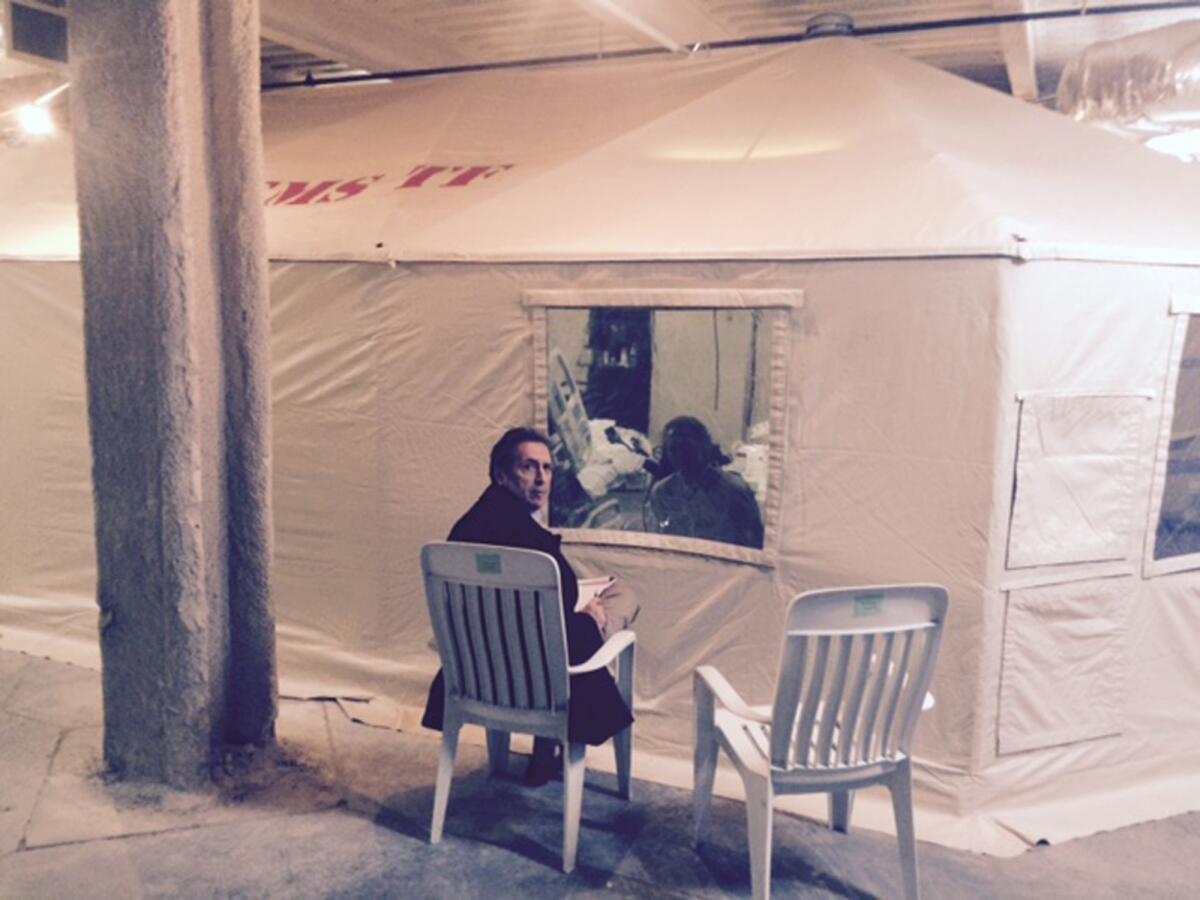Op-Ed: Asymptomatic quarantines for Ebola are foolish

- Share via
Caution about risk is part of our vernacular. In the ongoing discussions about the precautions needed to prevent more U.S. cases of Ebola, you often hear the phrase “in an abundance of caution,” usually invoked to justify a high level of government intrusion, such as a quarantine. In a recent NBC News/Wall Street Journal poll, 71% of the respondents supported mandatory quarantines for health professionals who have treated Ebola patients in West Africa, even if they are asymptomatic.
But we don’t — or at least we shouldn’t — make public policy decisions by referendum. Addressing risk, whether it derives from infectious diseases, pharmaceuticals or hurricanes, should have a scientific basis and be proportional to the probability and degree of harm.
I was once on a panel with an executive from a small company that was developing pharmaceuticals obtained from genetically engineered bacteria. He boasted of the ways he and his colleagues were being exemplary citizens. In one example, which he offered with great pride, he said that although regulations permitted them to pour down the drain the large amounts of liquids containing low-level, stable radioisotopes used in their research, his company instead shipped it to special repositories intended for high-level radioactive waste.
But his company’s disproportionate “abundance of caution” actually increased the costs and harm to society.
Radioactive isotopes are ubiquitous. Carbon-14 and tritium are found in every cell of our bodies; and potassium-40, the largest source of radioactivity in the human body, is present in many common salt substitutes. Low-level laboratory or manufacturing waste that contains them can be disposed of as ordinary trash or poured down the drain. In contrast, high-level radioactive waste that contains certain other radioisotopes must be transported to one of a small number of facilities in the U.S. By unnecessarily sending its radioactive waste to limited-capacity special facilities, this company placed a gratuitous burden on societal resources, all in the name of corporate social responsibility. We’re seeing a similar phenomenon in the exaggerated responses to the threat of Ebola.
A group of physicians and public health experts discussed in an October New England Journal of Medicine article what is known about the spread of Ebola, the imposition of excessive restrictions (for example, by several governors) on people possibly exposed to Ebola-infected patients, and what should be the appropriate response. They were especially critical of compulsory 21-day quarantines on healthcare workers returning to the United States after having cared for patients with Ebola infection in Africa, saying that this approach “is not scientifically based, is unfair and unwise, and will impede essential efforts to stop these awful outbreaks of Ebola disease at their source.” They characterized such quarantines as “like driving a carpet tack with a sledgehammer: It gets the job done but overall is more destructive than beneficial.”
Their article contained critical bits of information that, taken together, argue against widespread, mandatory quarantines to prevent the spread of Ebola infections:
“Transmission arises from contact with bodily fluids of a person who is symptomatic — that is, has a fever, vomiting, diarrhea and malaise. We have very strong reason to believe that transmission occurs when the viral load in bodily fluids is high, on the order of millions of virions per microliter. This recognition has led to the dictum that an asymptomatic person is not contagious; field experience in West Africa has shown that conclusion to be valid.
“Therefore, an asymptomatic healthcare worker returning from treating patients with Ebola, even if he or she were infected, would not be contagious…. [F]ever precedes the contagious stage, allowing workers who are unknowingly infected to identify themselves before they become a threat to their community…. [T]he sensitive blood … test for Ebola is often negative on the day when fever or other symptoms begin and only becomes reliably positive 2 to 3 days after symptom onset. The point is supported by the fact that of the nurses caring for Thomas Eric Duncan, the man who died from Ebola virus disease in Texas in October, only those who cared for him at the end of his life, when the number of virions he was shedding was likely to be very high, became infected. Notably, Duncan’s family members who were living in the same household for days as he was at the start of his illness did not become infected.”
I found persuasive their argument that self-monitoring for signs and symptoms of Ebola infection, with daily reporting to public health authorities, is adequate.
University of Louisville professor Mark Rothstein has written that quarantine “raises in the starkest possible terms the fundamental ethical conflict of public health — the clash between individual and population rights and interests.” Although in the interest of protecting public health the courts have permitted restriction of individuals’ liberty through “reasonable regulation,” defining how much infringement is “reasonable” can be difficult. When in doubt, shouldn’t we let science show the way?
Henry I. Miller, a physician and molecular biologist, is a fellow at Stanford University’s Hoover Institution. He was the founding director of the Food and Drug Administration’s Office of Biotechnology.
Follow the Opinion section on Twitter @latimesopinion
More to Read
A cure for the common opinion
Get thought-provoking perspectives with our weekly newsletter.
You may occasionally receive promotional content from the Los Angeles Times.









